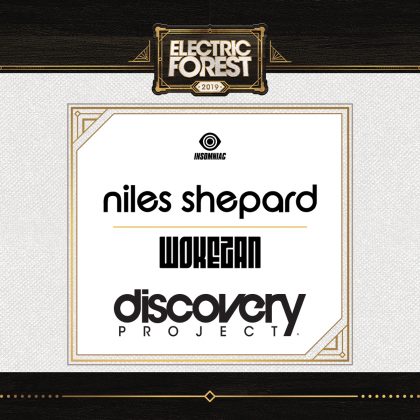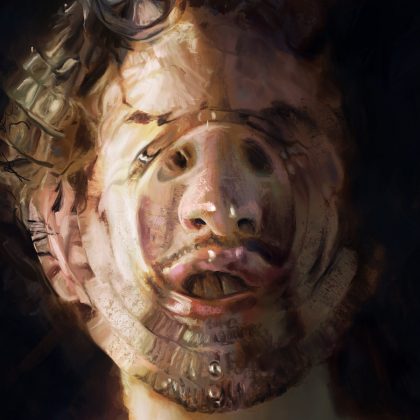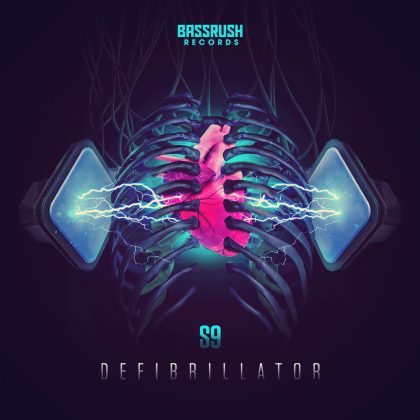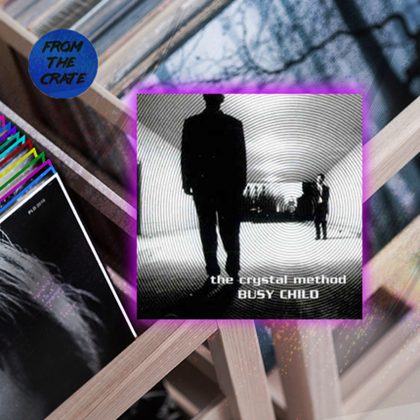REVEL “199X”
The rave movement was born out of an aching necessity for outsiders to congregate in a safe space and dance without judgment. It was a counterculture established entirely on the back of music made on machines, and yet it still somehow managed to have just as much of a human touch as anything performed with traditional “instruments.”
This rich history is what informs REVEL’s music. He’s on a mission to remind the industry that even though the scene has found a new worldwide appeal, it should not be treated as a commercial good that can be disposed of once the hype runs dry. He may not have been around during dance music’s inception, but his passion stems from a deeply rooted drive to preserve the principles of the OG rave.
REVEL’s debut, released back in April, is his manifesto. “Body & Blood” is a thrashing slice of electro—the kind of music that increases your heart rate as it vibrates the windows of a dimly lit warehouse at 4am. He used the track’s video to boldly declare his revolution and reclaim the rave for the real ravers—or as he so eloquently put it, to eviscerate “producers who produce nothing, DJs who can’t DJ, and dance music you can’t dance to.”
He’s now shelling out another call to arms through the solid single he just dropped as the latest Discovery Release. “199X” opens with an impassioned vocal seasoned with a flourish of synths and a rolling breakbeat that immediately drops you into the middle of an illegal underground. The music swells with a barrage of rave-ready samples that seep deep into a sub-smashing bassline drop that’s dark, dirty, and just the right amount of rude.
We caught up with REVEL to discuss what made him fall so deeply in love with raving, his previous life as a touring DJ, and what has led him to the save-the-rave movement.
REVEL’s “199X” is available here.
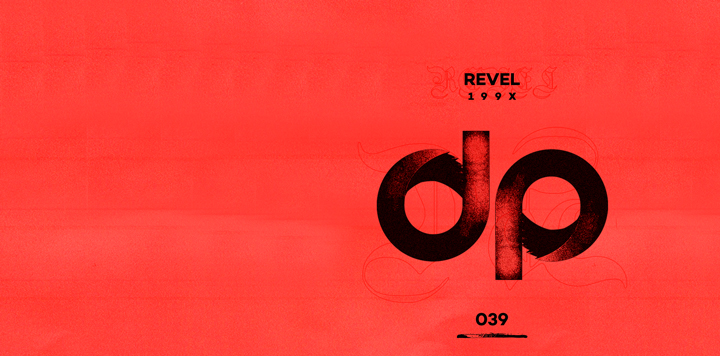
Your debut “Body & Blood” made a pretty bold statement about modern rave culture. What made you fall in love with the scene in the first place?
Burial, without a question. I was listening to dance since I was 11, working on dance not too long after that. The thing is, despite this, I didn’t actually begin to understand dance as art until much later, and the turning point was my introduction to Burial’s music. I remember first listening to “Untrue,” and it was unlike almost anything else before that. I was instantly transported somewhere and fully immersed in this foggy, forlorn world that he inhabited. I dug and tried to understand why this music had this effect, break it down, and compartmentalize it. What was the formula?
I struggled with understanding Burial for years; it turned out, as most things are, to be much more simple than complex. It all came straight from the heart. He was writing music about the death of rave. He heard all the stories from his older brother about this incredible movement of the early ‘90s, of these illegal warehouse parties in the UK, and he wasn’t old enough to go to any of them, or so the story goes. But he listened to all these jungle tracks and big warehouse tunes for years after.
When he started writing his own music, it was all based on these hazy, foggy memories of the same stories, and like dust in the attic that covers all your childhood toys, so too were these memories of memories degraded in such a way that created this romanticized vision of rave and his lament at its death. It was my journey to discover and understand Burial that brought me to this same place, and I found in that scene that a lot had been lost over the years; it isn’t hard to look around now and see something much degraded. I learned to love rave because of this.
How do you think the culture is doing right now?
It depends on where you look. I see an underground waiting to burst open but an overground that is oversaturated, congested, and diseased. No one in [the] mainstream is trying to break the mold; they’re all too concerned with maintaining status, numbers, and income. We don’t have artists anymore; we have brands.
It all traces back to the idea of spectacle over substance. If we throw enough lasers, likes, and retweets at something, it justifies its existence and is “good.” These “career” DJs aren’t concerned with reinvesting into the culture that propped them up. The issue becomes that these “brands” are our icons—they’re the role models of the up-and-comers—and as with anything else, we emulate and over-create. The new generation sees this and says, “Fuck making anything substantial—let’s just take what’s popular and roll with it,” because they don’t see anything else.
It’s a vicious cycle that exists in all forms of art but is reaching its apex here in dance. We’ve run every single “trendy” genre straight into the ground within a couple of months. I can’t even discern who is who in dubstep anymore; everyone is using the same sounds and rhythms over and over again. What happens next is stagnation for us—even a crash, just like disco. But I love dance too much. I want to see it thrive.
This isn’t your first time around the block in dance music. Can you talk a bit about your background?
I’ve been making tunes since I was 11 years old; that’s more than half of my life now. I had a successful project a few years back—was touring with some great people, playing great shows, putting out well-received tunes. The thing is, I felt what I was doing was creatively bankrupt. It was around the time that I was growing up and exploring more music. I wasn’t ready for everything else that came with this at such a young age. I became disillusioned with dance music after seeing what happens in the background, how the industry would destroy extremely talented people with no remorse, how little our idols [cared] about us. I couldn’t write anything that fit with the status quo. I wasn’t enjoying touring or anything else about my lifestyle, so I just decided to take some time. I’ve floated around and produced for a bunch of people in the meantime, but I never stopped loving the idea of dance.
After your break, what led you back?
Finding that missing element, understanding dance as art. It pushed me straight back here. It wasn’t something that happened overnight; it was gradual. The more I dug into early rave culture, the more I found what was missing in modern dance. I felt like dance music needed a push. I wanted to recreate some of these memories for a new age. I want to reintroduce the idea of DIY, of doing stuff out of passion.
There’s this quote I love: “Rave was more punk than punk. Ten thousand people in a warehouse, making records in your bedroom, pirate radio… you could have a career entirely outside the conventional music business. It was absolute outsider culture.”
We need some edge again. We’re not pop stars and need to stop trying to be pop stars. What makes dance music so special is the fact that it exists outside of all conventions entirely. The more we try to fit in with these conventions, the more of what makes dance dance becomes lost.
You seem to have a true love for the culture. What songs and artists have been pivotal for you?
Burial—I can’t overstate that. Another big influence is the Prodigy as of late; you can certainly hear it in my stuff. Early on, though, it all started because of Daft Punk, my uncle showing me “Revolution 909.” He was a big house head, vinyl DJ—as legit as they come.
All the bloghaus from ‘07–’09 were probably the biggest influences that shaped my sound really early. The whole Ed Banger crew, SebastiAn, and the rest of them, each unique in their own way. “Ross Ross Ross” is still a massive tune. The Bloody Beetroots early on—I still have like 20+ of their unreleased MP3s from their demo days. As of lately, a lot of early jungle and acid house. “Rave Reworks” from NineTimesNine is probably the only dance release I’m hyped about right now. I could go on forever; there’s too much stuff I like.
Follow REVEL on Facebook | Twitter | SoundCloud
Follow Discovery Project on Facebook | Twitter | SoundCloud

